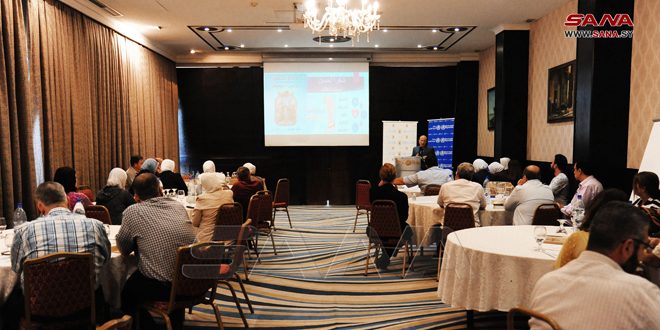 Stopping smoking cigarettes and hookahs contributes to reducing the incidence of many respiratory and cardiovascular diseases. Awareness is a key factor in achieving this, especially since World Health Organization statistics indicate that 8 million people die annually due to smoking.
Stopping smoking cigarettes and hookahs contributes to reducing the incidence of many respiratory and cardiovascular diseases. Awareness is a key factor in achieving this, especially since World Health Organization statistics indicate that 8 million people die annually due to smoking.
On May 31 of each year, the countries of the world celebrate the World No Tobacco Day, where the World Health Organization has chosen the slogan “Tobacco poisons our planet” as a title for the events and activities that are being held this year, as countries intensify awareness activities about the dangers of smoking in all its direct and negative forms and its impact on the environment in general.
During an event organized by the Ministry of Health today at the Dama Rose Hotel in Damascus, the Director of the Anti-Smoking Program at the Ministry, Dr. Abeer Obeid, indicated that the smoking cessation clinics in health centers, which are currently 24 clinics distributed in various governorates, provide advice to help people who want to quit the smoking habit, in addition to psychological, social and therapeutic support. She pointed out that the program, in cooperation with a number of authorities, launched awareness activities and initiatives targeting the young generation, where activities were implemented in a number of schools and universities.
The Director of Primary Health Care in the Ministry, Dr. Razan Al-Tarabishi, confirmed that the Ministry’s programs and activities focus on raising awareness and health education about the dangers of smoking on the smoker and those around him/her and assisting those who wish to quit, calling for strict application of Legislative Decree No. 62 of 2009, which prohibits smoking in public places.
The Assistant Minister of Health, Dr. Ahmed Dhamiriya, pointed out that the Ministry, in coordination with various authorities, seeks to educate the younger generation about the dangers of smoking and its devastating health, social and economic consequences, in addition to its negative impact on the environment and air and soil pollution with chemical and microplastic waste.
The Director of the Anti-Smoking Program at the World Health Organization office in Syria, Dr. Wafaa Al-Tijjar, pointed out the importance of raising awareness, especially with the increase in the number of smokers.
The representative of the National Anti-Smoking Committee in Syria, Manar Hudaifa, explained that the committee emphasizes in its recommendations the need to unify governmental, private and civil efforts to combat the use of tobacco products in all its forms, establish a price structure for tobacco products that limits its spread rates, and allocate part of the tax revenues on tobacco to support the quality of services provided by the program of combating smoking, preparing studies on the dangers of smoking in various fields, and launching awareness campaigns targeting different age groups.
NR

